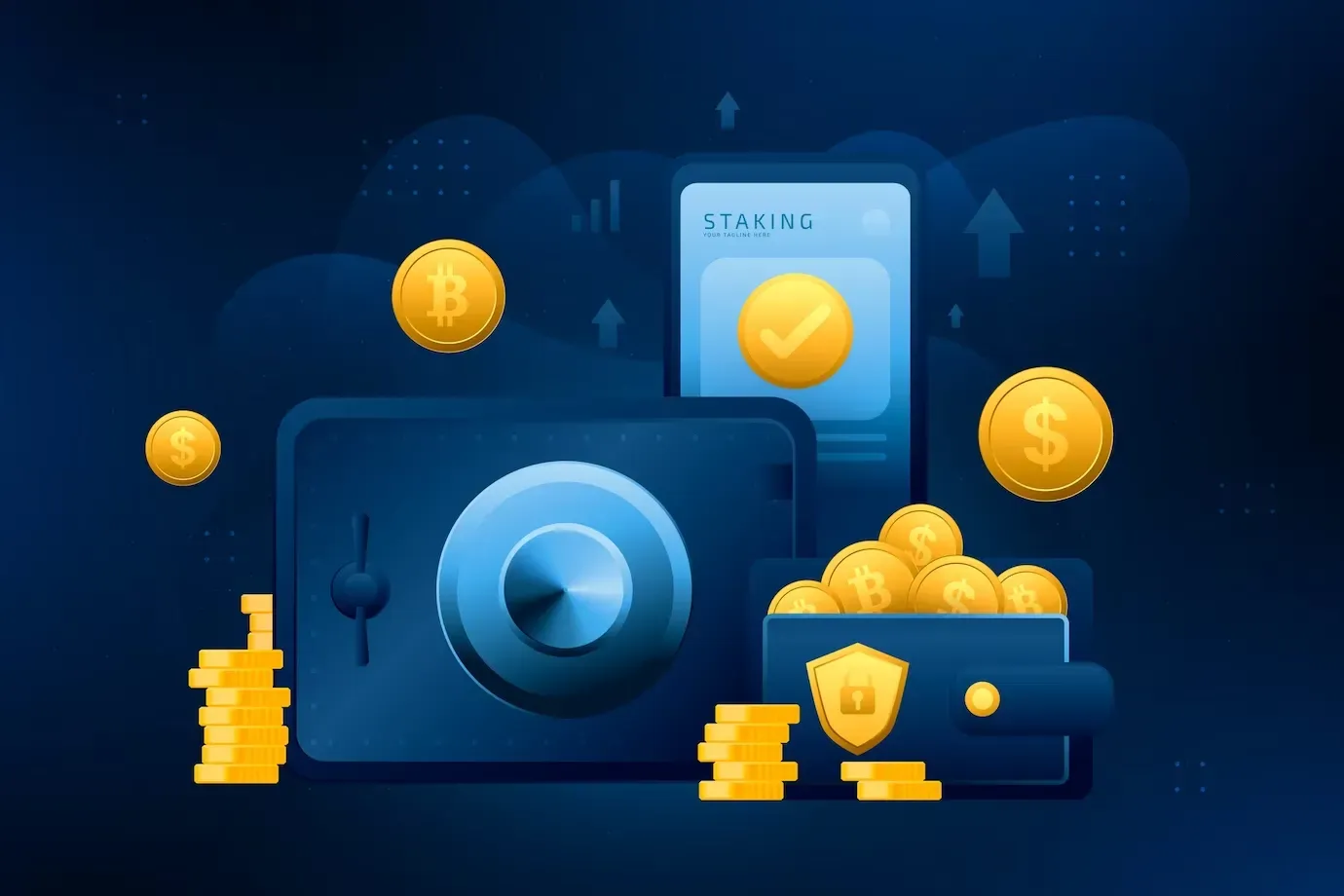
Navigating the World of Crypto Wallets: Your Key to Secure and Convenient Cryptocurrency Management
Table of Contents
You may have heard of so-called 'crypto wallets' such as eToro, Binance, and Coinbase. But what are they exactly? And how can they help you, in your cryptocurrency investments? In this article, we'll dive into the world of crypto wallets, exploring what they are, how they work, the various types they come in, and how to choose the right one for your needs.
What is a Crypto Wallet? And why Does it Matter?

In the world of cryptocurrency investments, a crypto wallet is your digital safe. It's like your bank, but for virtual money. This wallet keeps your private keys secure, and these digital keys prove your ownership, allowing you to access and manage your cryptocurrencies.
These wallets also allow you to send, receive, and spend cryptocurrencies like Bitcoin and Ethereum. They also come in various forms, from hardware wallets like Safepal (which resembles a real wallet) to user-friendly mobile apps like Coinbase Wallet, making the use of cryptocurrencies as seamless as online credit card transactions. They're like your personal assistants for managing your digital assets.
Unlike a traditional wallet that can hold physical currency, crypto wallets don't physically store your cryptocurrency. Instead, your digital assets exist on the blockchain, and you can only access them using the aforementioned private key. Losing your private keys means losing access to your crypto assets. Therefore, it's vital to prioritize your hardware wallet.
Types of Crypto Wallets
- Hot Wallets: Hot wallets are internet-connected, granting you access from nearly anywhere with an internet connection. They can be further categorized into custodial and non-custodial wallets.
- Custodial Wallets: These hot wallets are provided by third-party service providers such as exchanges. When using a custodial hot wallet, the service provider manages your private keys on your behalf. While they offer convenience for day-to-day transactions, you entrust your assets to the provider.
- Non-Custodial Wallets: Non-custodial hot wallets are also online but provide you complete control over your private keys. You generate and manage your keys, enhancing security compared to custodial alternatives. These wallets are ideal for those who prioritize control and are willing to manage their keys.
- Custodial Wallets: These hot wallets are provided by third-party service providers such as exchanges. When using a custodial hot wallet, the service provider manages your private keys on your behalf. While they offer convenience for day-to-day transactions, you entrust your assets to the provider.
- Cold Wallets: Cold wallets, also known as offline wallets, remain disconnected from the internet and are predominantly used for long-term cryptocurrency storage. They come in the form of hardware wallets (physical devices) or paper wallets (physical documents). While they offer unparalleled security, they are less suitable for everyday transactions.
Key Factors to Consider Before Choosing a Crypto Wallet
- Security: Prioritize wallet security. Look for features like two-factor authentication (2FA), biometric authentication, and hardware wallet options for added protection.
- Accessibility: Ensure wallet accessibility by seeking user-friendly interfaces, mobile app availability, and compatibility with your devices for a seamless crypto management experience.
- Private Key Control: Ensure that you have full control over your private keys. Some wallets, especially custodial ones, may manage your keys for you, which could pose security risks.
- Backup and Recovery: Check if the wallet offers a secure backup and recovery process for your private keys. This is crucial in case you ever lose access to your wallet.
- Compatibility: Ensure that the wallet supports the cryptocurrencies you intend to use or invest in. Different wallets may have varying levels of compatibility.
- Multi-Currency Support: If you plan to invest in multiple cryptocurrencies, opt for a wallet that supports various coins and tokens.
Taking Charge of Your Crypto Journey: Secure Your Future with the Right Wallet

In conclusion, crypto wallets serve as your gateway to secure and convenient cryptocurrency management. They play a pivotal role in ensuring the safety and accessibility of your digital holdings. Whether you opt for a hardware wallet mirroring a traditional wallet or prefer user-friendly mobile apps, crypto wallets empower you to send, receive, and spend cryptocurrencies with ease.
As the cryptocurrency ecosystem evolves, crypto wallets will remain your trusted companions on this transformative journey. Embrace the future of digital finance with confidence, knowing that your crypto wallet is the key to secure and convenient cryptocurrency management.






